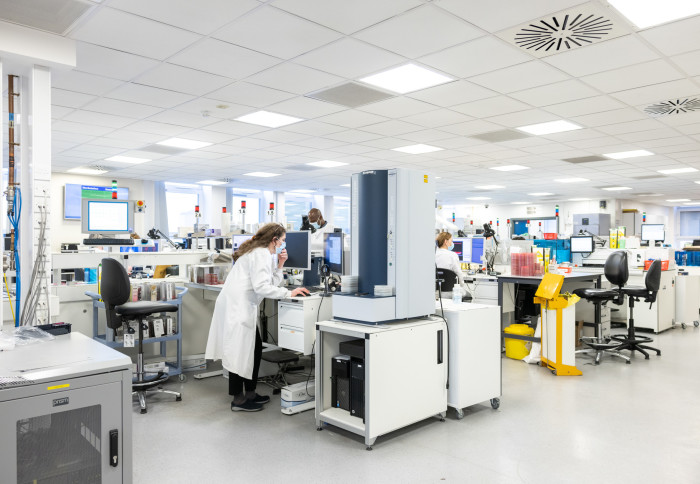Imperial partner Apollo receives £100m to boost medical research at leading unis



Imperial will benefit from continued support for translational biomedical research under a unique technology transfer model.
Imperial has joined forces with the University of Cambridge and UCL in a partnership with biopharmaceutical company Apollo Therapeutics that will accelerate the translation of research into a variety of innovative medical treatments.
The UK-headquartered company will provide significant funding and drug development expertise to translate academic research into commercially available therapeutics that have the potential to transform the standard of care for patients. Apollo was launched in late 2015 by the tech transfer offices of the three global top-ten universities alongside three major pharmaceutical companies and has raised over £100 million in new financing from predominantly US-based investors to expand.
The new backing given to Apollo Therapeutics by globally-based investors reflects the world-leading expertise in translational medicine found at Imperial, Cambridge and UCL and signals a major development in this unique collaboration.Dr Simon HepworthDirector of Enterprise, Imperial College London
Apollo has already supported a range of translational research that includes work at Imperial by Professor Martin Wilkins and Dr Tom McKinnon, among several Imperial projects supported by Apollo in the first phase of the partnership.
Apollo’s new funding by Patient Square Capital and other institutional backers marks a new phase and significant expansion of the relationship, which provides a unique opportunity for the three universities to collaborate. The renewed partnership between the universities and the company aims to support new work in areas such as cancer, major inflammatory disorders, and rare diseases. It will pursue antibody, small molecule chemistry and other technological approaches to develop new therapeutics. Apollo will continue to grow and explore new collaborative relationships with leading academic researchers at the three universities and with additional institutions around the world.
Dr Simon Hepworth, Director of Enterprise at Imperial College London, said: “The new backing given to Apollo Therapeutics by globally-based investors reflects the world-leading expertise in translational medicine found at Imperial, Cambridge and UCL and signals a major development in this unique collaboration.”
“The coronavirus pandemic has further highlighted the UK’s leading role in biomedical research and the need to quickly and effectively commercialise it. This partnership results from our endeavour to work closely with friends and collaborators in higher education, finance, business and government to establish new innovation models that further expand our capacity to translate ideas into world-changing innovations and provide models for other institutions to emulate.”
The partnership innovates upon established models of technology transfer by providing funding to enable academics to establish the commercial viability of their innovations. In contrast with traditional industry-funded academic research, funding and commercial expertise is being offered via an open call to academics at participating institutions and is not restricted to a specific field, technology, or application.
In addition to bridging a well-known funding gap that can hamper the development of early-stage innovations, this partnership allows industrial drug developers at Apollo to provide their expertise to early-stage research, helping create a seamless transition from research to commercialisation. Once proofs of concept are established, Apollo Therapeutics will work toward making new therapeutics available to patients worldwide.
Academics and others who wish to learn more about Apollo Therapeutics and explore opportunities to apply for project-based funding can do so by emailing Imperial’s Enterprise Division.











Responses